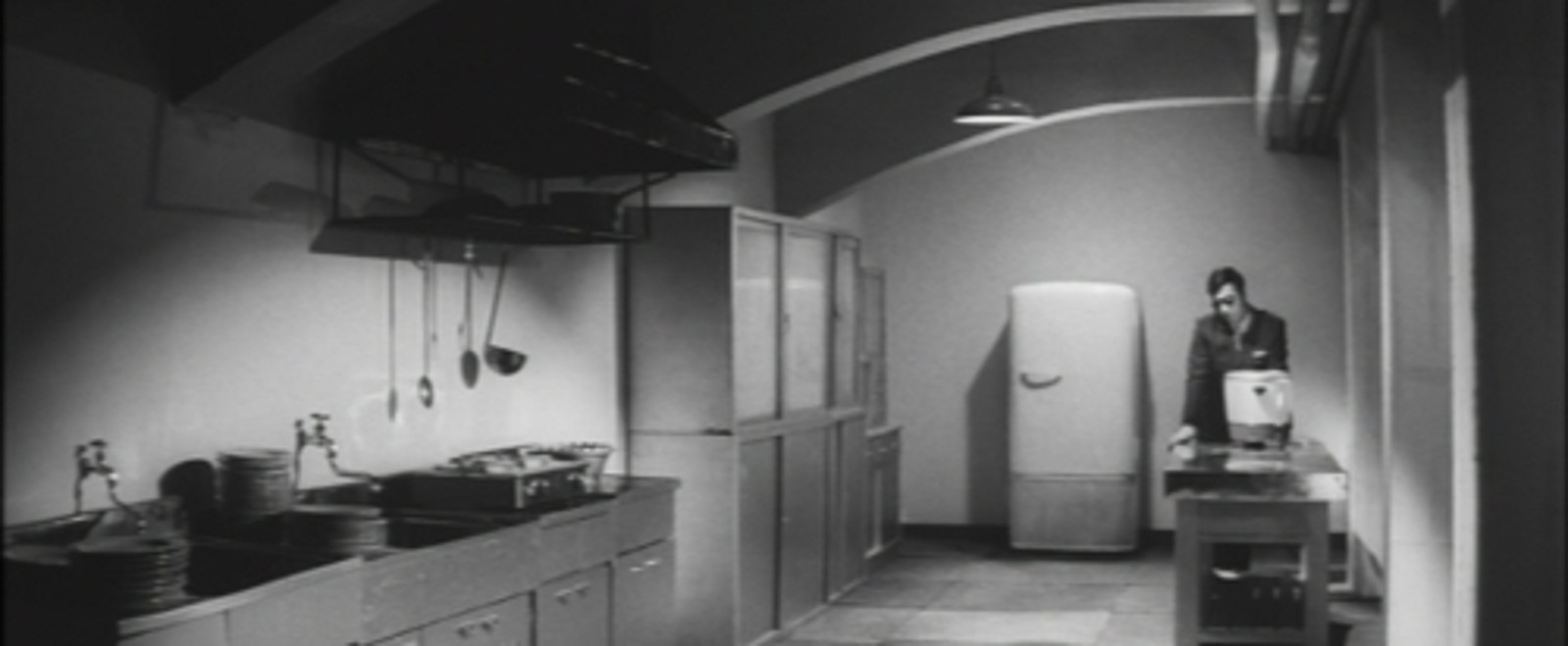Ryo Ikebe, a popular Japanese actor from forties through seventies, passed away last week. He was 92.
Internationally, he is probably best known for the lead character in Ozu’s EARLY SPRING (1956). In Japan, he was considered to be a very versatile actor, from melodrama (AOI SANMYAKU (1949)) to Yakuza movies (SHOWA ZANKYO DEN (1965)). Also, he acted as a conscience in Japanese film actor circles. However, in later years, he gradually shifted his activities from acting to writing. He published dozens of books, mostly essays and his experience during the war.
But to me, he is always Gohei in ASHI NI SAWATTA ONNA (The Woman Who Touched My Legs, 1952). This is one of the early Kon Ichikawa works, full of whimsical antics and nonsense farce. Acting is deliberately cartoonish, plot is completely contrived, but the whole thing is hilariously fast-paced and obliquely cynical. Fubuki Koshiji is a female pick-pocket and about to set up a con, So Yamamura (who is to play Koichi in TOKYO STORY next year) is a sucker, and Ryo Ikebe is the detective, who is chasing around Koshiji.
The opening of the film is a good example of hip in early fifties Japanese cinema, with Fubuki Koshiji singing. Ryo Ikebe himself supplied the lyrics for this title song, which is completely unintelligible nonsense.
Later years, his Yakuza character, a blood-brother with Ken Takakura, was extremely popular. Apparently, he was not so enthusiastic about playing a Yakuza character, and refused to play the part at first. He agreed to play with some conditions, one of which being that his character must die in the end.
There is a world of Ryo Ikebe other than EARLY SPRING, and I hope it should be rediscovered.
added on 2010/10/19
The music in the clip above was composed by Toshiro Mayuzumi, one of the most influential Japanese composer in postwar era. He composed many contemporary orchestral works, operas and other styles of music, usually incorporating tone of Japanese traditional instruments. Also he composed numerous cinema soundtracks and music. For most film buffs, he is probably known for Ozu’s OHAYO and THE END OF SUMMER, and Kon Ichikawa’s TOKYO OLYMPIAD.
Copyrighted materials, if any, on this web page are included as “fair use”. These are used for the purpose of research, review or critical analysis, and will be removed at the request of copyright owner(s).
